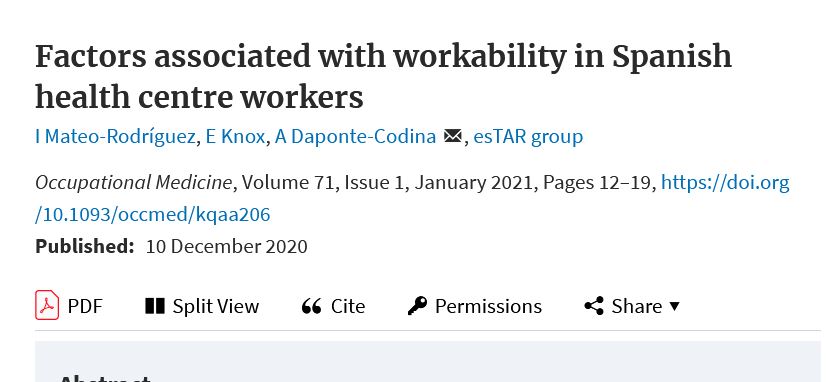
The concept of workability provides a conceptual framework and proposes measures for the evaluation of relevant actions focused on a healthy workforce. In Spain, one of the countries with the highest life expectancy, there are practically no scientific studies on workability and its associated factors.
The objective of this study is to examine the associations between workability and variables related to health and work in a sample of workers from Spanish health centres.
Cross-sectional study including 1184 health centre workers who completed a questionnaire at baseline, comprising measures of workability, health and other work-related factors. Workability has been analysed as a one-factor construct, and as a two-factor construct. Multinomial logistic regression models were used to analyse factors associated with workability.
As a one-dimensional construct, workability is associated with physical and mental health, number of hours of worked, insomnia, work and family life balance, adequate training, never having had an accident and type of contract. When the two-factor measure was used, sensitivity of findings increased, and it was identified that those participants who were older, lived alone and have more years of service in their profession also show worse workability.
The present study identified factors associated with the workability of health centre workers. The two-factor workability index (WAI) has better psychometric properties and used in combination with the global measure of WAI, identifies important additional aspects, specifically, age and years of professional experience as additional considerations for the intervention.


